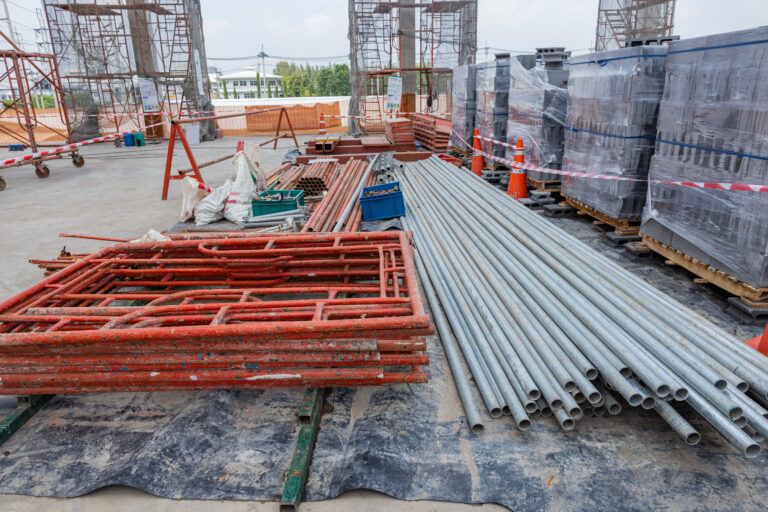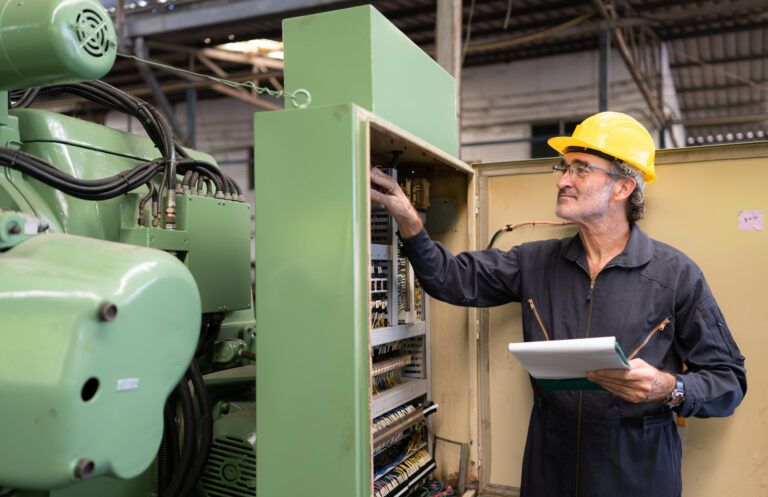Stepping into the world of electrical engineering can be daunting, especially when it comes to navigating the interview process. With a myriad of technical and behavioural questions that could come up, preparation is key. Whether you’re a recent graduate, ready to embark on your career, or an experienced professional looking to switch gears, knowing what to expect can make all the difference.
From understanding the principles behind wireless charging to designing circuits that control motors, this article will guide you through some common electrical engineer interview questions. We’ll also touch on how to prepare for those technical curveballs and the importance of asking your own questions to gauge if a company’s culture matches your expectations.
How Can One Prepare for Technical Questions?
Preparing for technical questions involves a multifaceted approach that encompasses a solid understanding of foundational principles, familiarity with specific tools and technologies relevant to the role, and practical application through problem-solving and project simulation. This comprehensive preparation strategy ensures candidates are well-equipped to tackle technical questions with confidence, showcasing their theoretical knowledge, practical skills, and problem-solving abilities.
Review Basic Electrical Engineering Principles
Start with the fundamentals, such as Ohm’s Law, Kirchhoff’s laws, and the understanding of AC and DC currents. These principles are foundational to electrical engineering.
Understand Role-Specific Technologies and Tools
Identify the technologies and tools essential for your target role. For instance, power engineers might focus on grid management systems, while electronics engineers might concentrate on semiconductor technology.
Get Familiar with Software like MATLAB or AutoCAD
Gain proficiency in industry-standard software. MATLAB is crucial for computational tasks, while AutoCAD is essential for designing and visualizing components and systems.
Learn about PLC Programming and Its Applications
Understand the basics of programmable logic controller (PLC) programming. PLCs are vital in automation, making this knowledge indispensable for roles in manufacturing and industrial settings.
Practice Problem-Solving with Project Examples
Engage in hands-on projects or problem-solving exercises related to your field. This practice helps solidify theoretical knowledge through practical application.
Simulate Circuit Design and Troubleshooting Exercises
Use simulation software to design circuits and troubleshoot them. This experience is invaluable for understanding circuit behaviour and identifying potential issues before physical implementation.
Prepare Explanations for Projects Listed on Your Resume
Be ready to discuss the projects on your resume in detail. Explain your role, the technologies used, and the outcomes. This preparation shows your ability to apply your knowledge effectively.
How Should One Approach Behavioural Interview Questions?
Approaching behavioural interview questions effectively requires a structured strategy, such as the STAR method, which stands for Situation, Task, Action, and Result. This approach not only helps in articulating one’s experiences effectively but also in demonstrating how one’s contributions have led to positive outcomes, aligning with the potential employer’s objectives and values.
Use the STAR Method to Structure Answers
Employ the STAR method to organize your responses effectively. This technique helps in structuring answers clearly and concisely, focusing on specific experiences.
Detail the Situation to set the context, describe the Task you needed to accomplish, explain the Action you took, and share the Result of your efforts. This format aids in storytelling, making your answers compelling and structured.
Reflect on Teamwork and Project Management Experiences
Reflect on instances of teamwork and project management. Discuss the challenges you faced, how you collaborated with team members, and the outcomes of projects you managed or contributed to significantly.
Provide Examples of Leadership and Conflict Resolution
Share examples where you demonstrated leadership and resolved conflicts. Highlight how you guided your team through challenges and mediated disputes, leading to a positive resolution.
Prepare Examples of Problem-solving in Past Projects
Prepare specific examples of how you approached problem-solving in previous projects. Discuss the issues encountered, the strategies employed to overcome them, and the successful outcomes achieved.
Highlight Innovative Solutions and Technical Skills Used
Emphasize innovative solutions and the technical skills you utilized in your projects. Showcase your creativity and ability to apply technical knowledge to develop effective solutions.
What Questions Should You Ask the Interviewer?
Asking questions during an interview is crucial for understanding the role, the team, and the company culture. Inquire about team dynamics and culture to gauge how you would fit into the company environment. Discussing the training, conferences, and mentorship programs available can offer a glimpse into how the company invests in its employees’ continuous learning and development.
These questions not only demonstrate your interest in the position but also help you assess if the company’s values align with your professional goals.
Inquire About Team Dynamics and Culture
Ask questions to understand the team’s dynamics and the overall company culture. This helps gauge how well you would integrate and contribute.
Ask How the Engineering Team Collaborates with Other Departments
Find out about the collaboration between the engineering team and other departments, highlighting the company’s approach to interdisciplinary projects.
Ask About the Most Challenging Projects in the Team
Question the interviewer about past projects that have been particularly challenging, providing insight into the technical complexities you might face.
Show Interest in Understanding the Technical Depth and Learning Opportunities
Express enthusiasm for delving into the technical aspects of your role and exploring learning opportunities that would allow you to grow professionally.
Query About Opportunities for Professional Development and Growth
Inquire about the company’s provisions for professional development and career growth, underscoring your interest in long-term career progression.
Discuss Training, Conferences, and Mentorship Programs Available
Discuss the availability of training sessions, conferences, and mentorship programs, which can reveal how the company supports continuous learning and development.
Powering Up for Success
From technical concepts like Ohm’s Law and circuit design to behavioural insights and interview strategies, this guide has explored the key areas aspiring electrical engineers should prepare for. By combining solid technical know-how with thoughtful self-presentation, you’re positioning yourself to make a strong impression and generate real interest from employers.
At Vista Projects, we engineer smart, integrated solutions across disciplines where electrical engineering is not just a specialty but a cornerstone of our innovation. Our collaborative, multi-disciplinary teams bring electrical systems to life in some of the industry’s most complex environments.
Ready to put your skills to work on real-world challenges? Discover opportunities with Vista Projects and help us build a more connected future.









